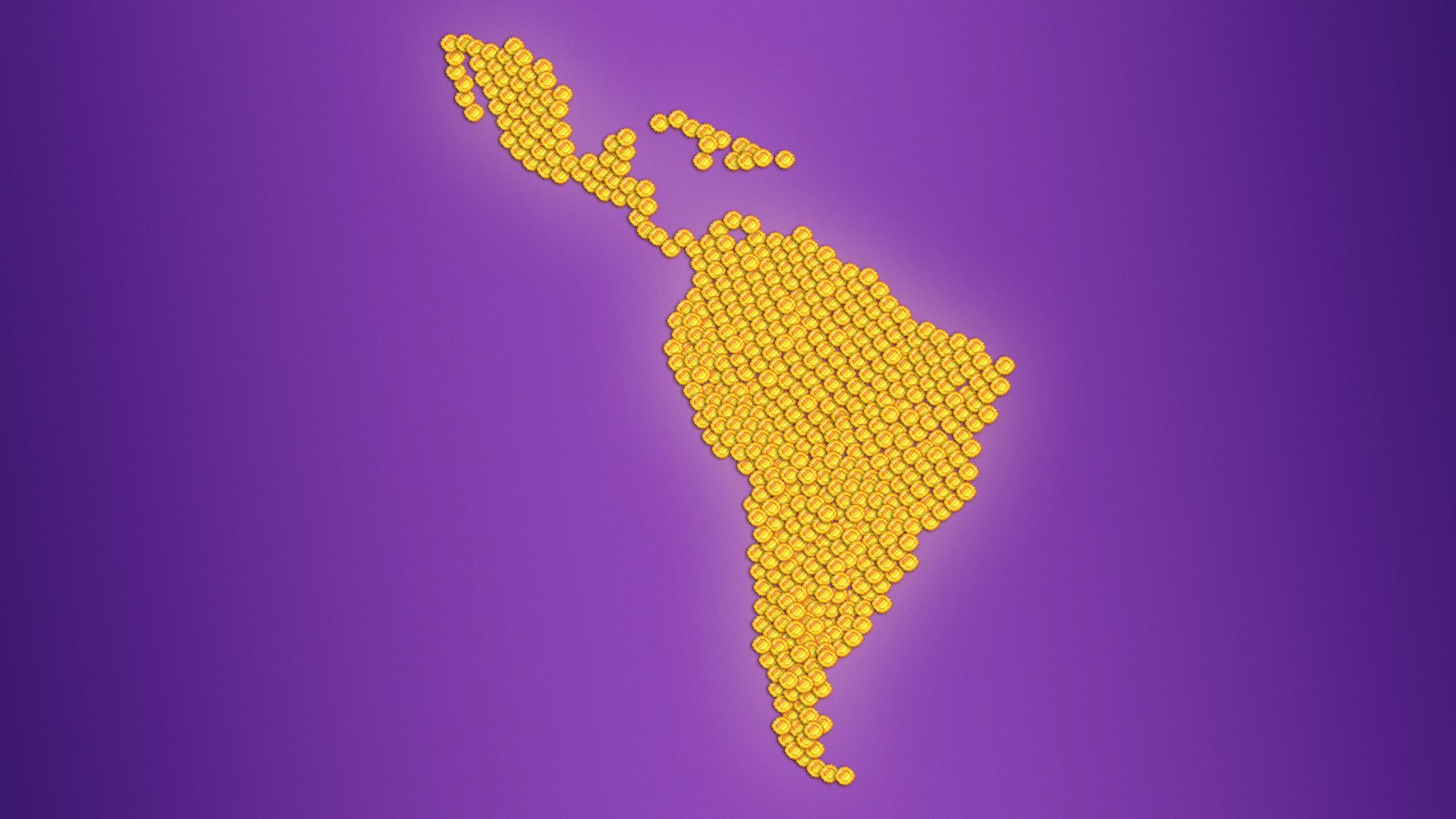Latin America leftists renew push for shared currency, but its chances are slim
Add Axios as your preferred source to
see more of our stories on Google.

Illustration: Megan Robinson/Axios
With more leftists coming to power across Latin America, the idea of a single shared currency is a hot topic again.
- It has been leftist politicians in particular, Brazilian President-elect Luiz Inácio Lula da Silva among them, who have championed a single currency as necessary to reduce dependency on the dollar, but the idea is likely to face many challenges, analysts say.
- Still, other areas of regional cooperation on critical economic, migration and environmental issues may be a reality soon.
The big picture: When Lula takes power on Jan. 1, Latin America’s five biggest economies — Argentina, Brazil, Chile, Colombia and Mexico — will have left-leaning governments.
Driving the news: Lula wants to create the "sur," a regional version of the euro, he said while campaigning.
- It's an appealing idea for some politicians as the dollar exchange rate is battering nations such as Argentina.
- In Chile, President Gabriel Boric said last month he'd be up for negotiating a shared currency.
- Lawmakers representing Bolivia, Colombia, Argentina, Venezuela, Peru and Ecuador signed a declaration last week calling for a new Latin American parliament and single currency.
- Mexican President Andrés Manuel López Obrador has twice pitched forming a European Union-like coalition in Latin America and the Caribbean.
Yes, but: A common currency is likely a "non-starter," given how past attempts at other types of regional integration have crashed and burned over disagreements, Latin America analyst Shannon K. O'Neil of the Council on Foreign Relations tells Axios, .
- In the 1990s, 34 nations pledged to create a regional free trade agreement, but most countries rejected it by the 2005 deadline over political discord.
- A virtual currency called sucre, proposed by former Venezuelan President Hugo Chávez in 2007 for regional use, never quite got off the ground.
But the leftist leaders’ shared goals could yield other major forms of business and economic cooperation, experts say.
- O’Neil said the nations could agree to build supply chains and economies of scale to attract manufacturers together; they could also invest in digital and electronic systems to jointly regulate migration
- Cecilia Tornaghi, senior director for policy at The Americas Society/Council of the Americas, said most of the leaders’ emphasis on environmental conservation could spawn regional initiatives ripe for U.S. cooperation.
Between the lines: Rising inflation and ongoing pandemic-related economic troubles could get in the way of regional integration.
- "But, at the same time, having regional success and integration could offer the (leaders) an accomplishment they can champion as contrast to domestic crises," Tornaghi says.
- O'Neil says "the political alignment makes this more of a possibility than before."
What to watch: The leaders of Mexico, Chile, Colombia, Peru and Ecuador are set to meet Nov. 24 for the Pacific Alliance summit (Brazil and Argentina were also invited).
- They’re expected to discuss new trade agreements and adding Costa Rica to the group.
Subscribe to Axios Latino to get vital news about Latinos and Latin America, delivered to your inbox on Tuesdays and Thursdays.
